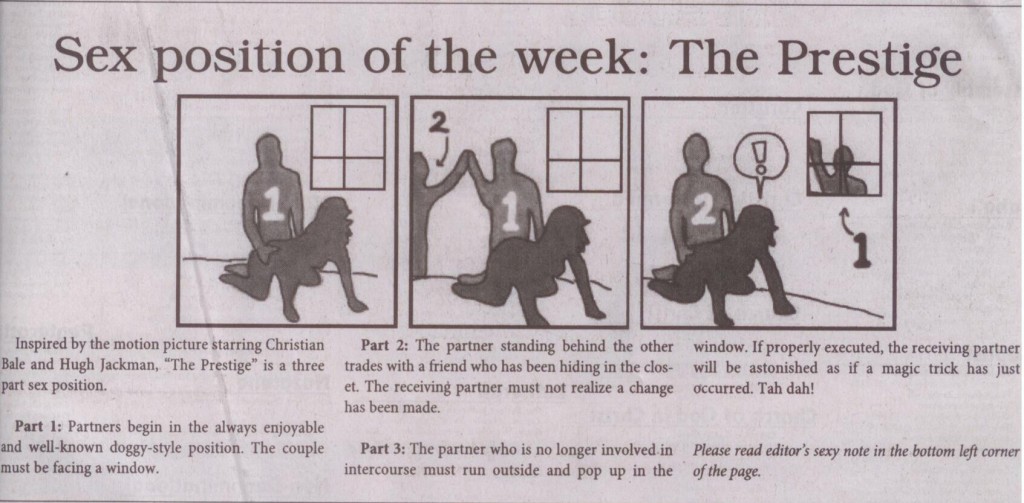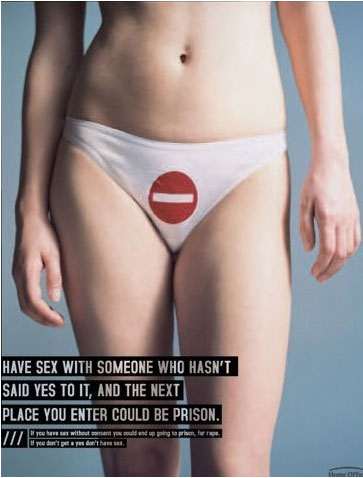Re-posted to add to the discussion about sexual assault and rape culture in the aftermath of the Steubenville verdict.
On the heels of yesterday’s cartoon making light of lynching published in Eastern Michigan University’s newspaper, Michaela N. submitted an intended-to-be-humorous visual making light of rape in The Purdue Exponent, the Purdue University student newspaper. Part of a “sex position of the week” series, this one suggests that one man should pass a female partner off to another man without her knowledge.
This is another piece of evidence that suggests that we live in a rape culture: a society that, at best, trivializes and, at worst endorses, sexual assault.
UPDATE: Zoe Hayes, editor-in-chief of The Purdue Exponent, sent along a note asking that we link to their apology. To their credit, unlike the non-apology issues in the case of the lynching cartoon linked to above, they express genuine empathy, remorse, and responsiveness.
For more indications that we live in a rape culture, see our posts on media coverage of a rape video game and the George Sodini murders, rapists as hyperconformists to ideal masculinity, the rape scene in Observe and Report, and t-shirts endorsing sex with “drunk girls”.
Lisa Wade, PhD is an Associate Professor at Tulane University. She is the author of American Hookup, a book about college sexual culture; a textbook about gender; and a forthcoming introductory text: Terrible Magnificent Sociology. You can follow her on Twitter and Instagram.





















